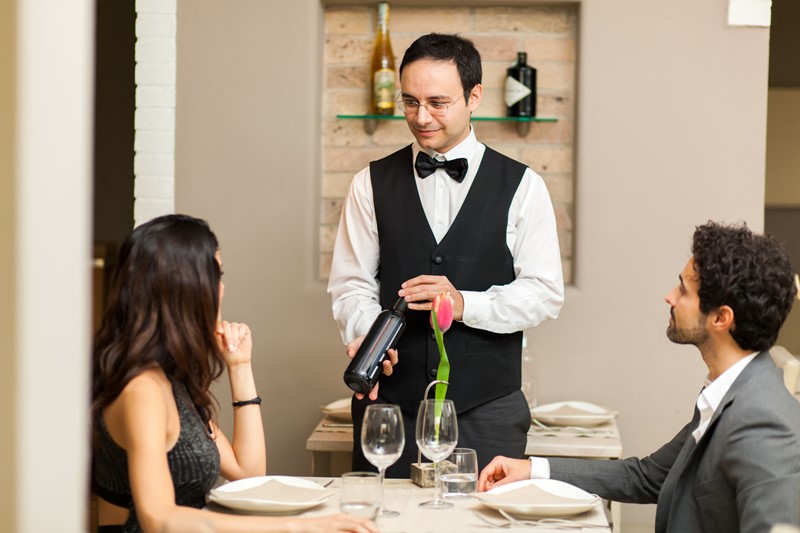The 6 indicators of wine-centric restaurants
How unearthing restaurants that truly honor wine

In today's dynamic gastronomy scene, there are establishments that go the extra mile in demonstrating their commitment to the art of viniculture. Beyond simply serving wines, some restaurants invest time, money, and expertise into curating the perfect wine experience for their patrons. This kind of dedication often brings benefits, not only in terms of customer satisfaction but also in building an esteemed reputation and creating word-of-mouth publicity. So, how can one identify if they've stepped into a restaurant that genuinely cherishes its wines? Here's a comprehensive guide.
1. Presence of a Certified Sommelier
A sommelier's presence in a restaurant is a strong indicator of the establishment's commitment to wine. In a world where many restaurants might, at best, boast a well-trained waiter, few can claim to have this certified wine professional on their team. Their role involves meticulous attention to detail in every aspect of the wine experience – from selecting wines that harmonize with the menu to advising patrons about the ideal wine for their meal. Traditionally, sommeliers in Europe would wear a silver tasting cup called a "tastevin" or "wine steward" as an emblem of their profession. Although this practice has faded over time, the expertise and dedication of the sommelier remain invaluable.
2. Designated Wine Storage Solutions
It's not enough for a restaurant to have a variety of wines; how they store these bottles matters equally. Top-tier establishments will often feature climate-controlled wine cellars or cabinets, ensuring optimal storage conditions. These environments maintain the right temperature and humidity levels while protecting the wines from strong odors or excessive lighting. Additionally, many of these establishments go a step further, offering wine tasting rooms and even on-site wine shops for patrons who'd like to purchase a bottle for home.
3. Evaluating the 'House Wine'
The 'house wine' often gets a bad rap, but it doesn't necessarily have to be a subpar choice. In establishments that care about their wines, even the house wine – usually the most affordable option – can be of commendable quality. It will typically come in a sealed bottle, identifiable by its label, and often be associated with a recognized wine region or certification.
4. Availability of Unconventional Bottle Sizes
Offering wines in unique sizes, such as half-bottles, magnums, or even the much larger 'jeroboams,' can be a hallmark of a restaurant dedicated to its wine-loving patrons. Although these sizes are less common and not top sellers, their availability demonstrates the establishment's commitment to catering to varied customer preferences.
5. Organizing Wine-Related Events
A restaurant truly dedicated to its wines won't stop at just serving them. Many will organize events such as wine pairing dinners, tasting sessions, or even courses on viniculture. Such initiatives not only provide a unique experience for patrons but also reinforce the restaurant's brand identity centered around fine wines.
6. A Thoughtfully Curated Wine Menu
Lastly, the presence of a well-designed wine menu can be the clincher. An excellent wine list is not just about quantity but quality. It should be visually appealing, organized, informative, and exclusively dedicated to wines.
When a restaurant truly invests in its wines, it's not just about expenditure—it's a promising strategy that often brings manifold returns in the form of popularity, recognition, and customer loyalty.
Founded in 2007, Vinetur® is a registered trademark of VGSC S.L. with a long history in the wine industry.
VGSC, S.L. with VAT number B70255591 is a spanish company legally registered in the Commercial Register of the city of Santiago de Compostela, with registration number: Bulletin 181, Reference 356049 in Volume 13, Page 107, Section 6, Sheet 45028, Entry 2.
Email: [email protected]
Headquarters and offices located in Vilagarcia de Arousa, Spain.